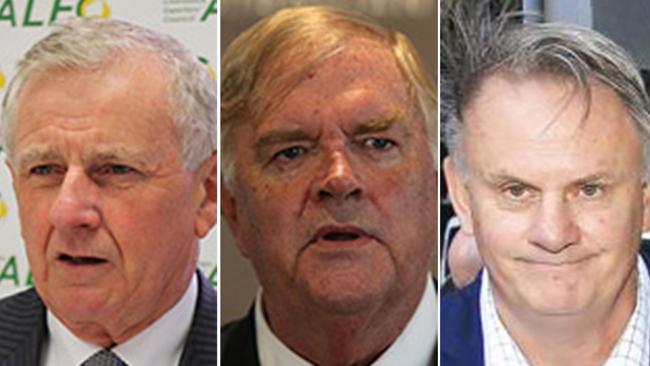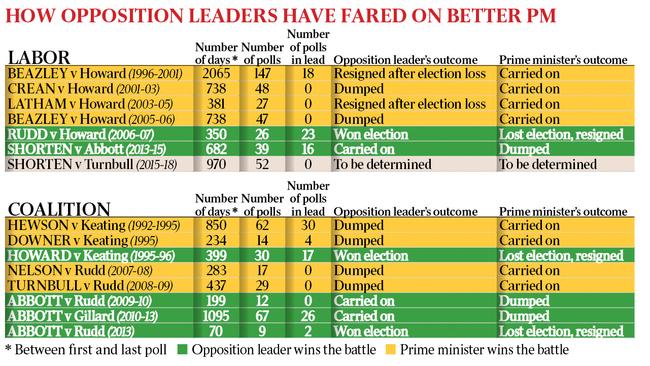
The opinion polls may still favour Labor — just. But history is against Bill Shorten.
No Opposition leader, as far back as 1992 at least, has ever presided over an election victory without having spent at least some time in front of their rival as the preferred prime minister.
Simon Crean, Mark Latham and Kim Beazley, during his second run as opposition leader, never won a popularity contest against John Howard. Kevin Rudd did and became PM.
Likewise as opposition leaders, neither Brendan Nelson, Malcolm Turnbull nor Tony Abbott could get ahead of Rudd during his first stint as PM.
Abbott won two of nine preferred PM polls against Rudd in his short term the second time around. He went on to win the 2013 election. The theory holds.
While Shorten’s role as Labor leader was consolidated by winning 16 of 39 polls between 2013 and 2015 against Abbott, the PM was dumped before Shorten could get a shot at him in an election. To his frustration, Shorten has yet to get ahead of Turnbull in the popularity stakes.
That is not to say it’s not possible. Turnbull has had a seesaw ride with punters, mainly the Liberal Party’s own base, which swings between wanting to run him down one day to being scared witless the next of what Shorten might do in government.
Shorten has twice been within the margin of error as preferred PM, once just two points behind Turnbull and more than once he has been three points behind.
This may all be statistical and historical curiosity but the facts cannot be ignored as useful in determining a leader’s fortunes during an age that, despite a Westminster system that elects parties first, elections have become presidential contests.
More Coverage







